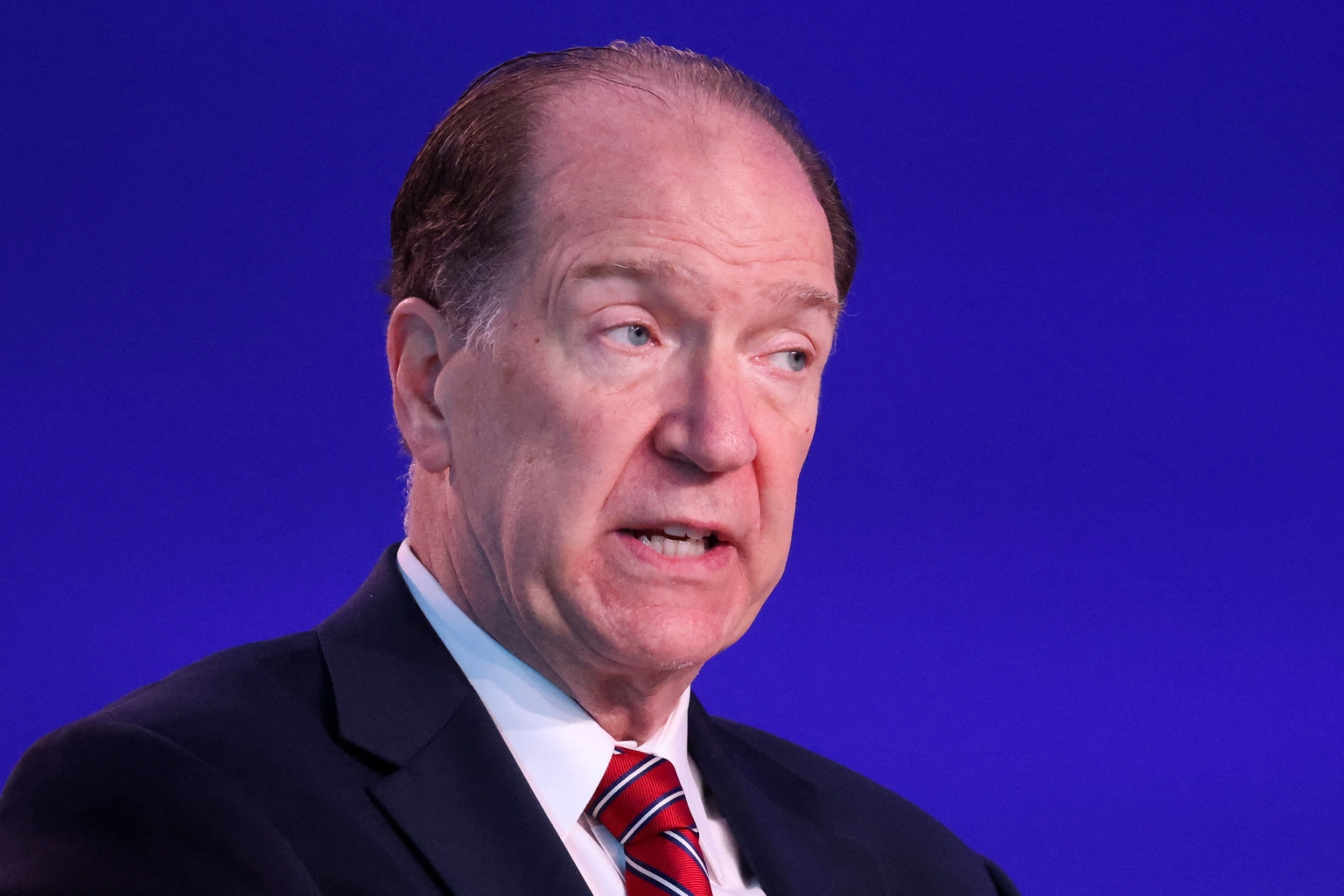World Bank slashes global growth forecast to 3.2% from 4.1%, citing war in Ukraine
Sign up now: Get ST's newsletters delivered to your inbox

World Bank president David Malpass said the global economy is now expected to grow at a rate of 3.2 per cent in 2022.
PHOTO: REUTERS
WASHINGTON (NYTIMES, AFP, BLOOMBERG) - The World Bank is slashing its forecast for global economic growth this year, citing the war in Ukraine, inflation and the lingering effects of the Covid-19 pandemic.
The World Bank now expects the global economy to grow at a rate of 3.2 per cent in 2022, down from its previous estimate of 4.1 per cent, its president David Malpass said on Monday morning (April 18). The World Bank estimated that the global economy grew 5.7 per cent last year.
The updated projection comes as policymakers from around the world head to Washington this week for the spring meetings of the World Bank and the International Monetary Fund (IMF).
"We begin this spring meeting facing severe overlapping crises," Mr Malpass said during a briefing with reporters. "There is Covid-19, inflation and Russia's invasion of Ukraine."
Mr Malpass said these forces were expected to drive up global poverty rates as the world copes with sudden increases in the prices of energy, fertiliser and food. Rising interest rates are expected to slow growth and exacerbate inequality, he added.
The World Bank is predicting a sharp contraction in the economies of Russia and Ukraine, and Mr Malpass said nearby countries in Europe and Central Asia would feel the effects. Consumers in advanced economies are expected to reduce their spending this year as petrol prices rise.
The IMF is scheduled to release its World Economic Outlook on Tuesday.
The World Bank is seeking to create a US$170 billion (S$231.5 billion) emergency fund to help the poorest nations being buffeted by multiple crises, Mr Malpass also said on Monday.
The "crisis response envelope" will continue the work begun during the Covid-19 pandemic, and help countries deal with surging inflation, which was made worse by the Russian invasion of Ukraine as well as the "severe financial stress" caused by high debt levels, he said.
"Countries are under severe financial stress - 60 per cent of low-income countries are already in debt distress or at high risk of it," Mr Malpass said, repeating the bank's call for improvements to the Group of 20 rich nations' so-called Common Framework to reorganise the debt of countries in danger of default.


